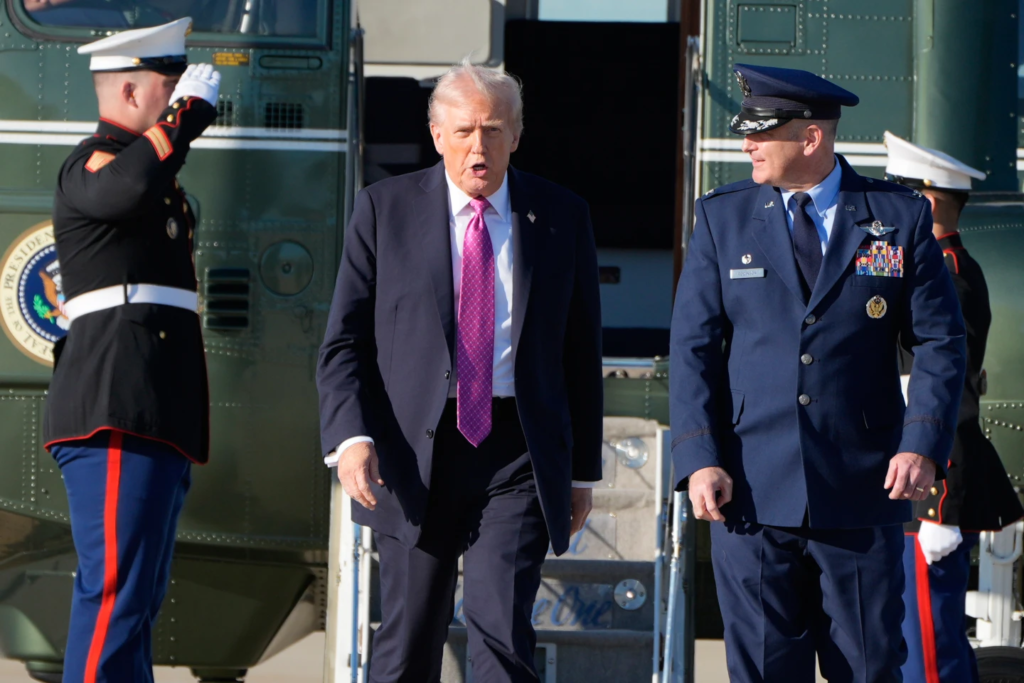Increasing numbers of Americans are expressing widespread anxiety over their economic future and potential to gain decent jobs during the presidency of Donald Trump, according to a new Associated Press–NORC Center for Public Affairs poll.
The findings prompt a potential red flag for the Republicans since the economic optimism Trump promised during his return to the White House in January has given way to employment freezes, recalcitrant inflation, and blanket public frustration.
Confidence in the Job Market Plummets Drastically

The survey found that 47% of U.S. adults are “not very” or “not at all confident” they would find a good job if they searched — up from 37% in October 2023.
Only 21% say they are “extremely” or “very confident” in the job market — a significant decline from 36% four years ago.
The slowdown follows months of below-average hiring, with monthly job gains averaging fewer than 27,000 workers since the administration’s April tariff hikes. Economists have indicated that the tariffs hurt manufacturing and trade-exposed sectors, and rising prices continue to squeeze household budgets.

“Folks changed presidents hoping for stability, but they’re not feeling it,” one analyst said. “Wages are stagnant, costs are rising, and job growth dramatically slowed.”
Inflationary Pressures Keep Piling Up
The survey points out the degree to which high living costs remain the foremost source of stress for American households.

54% said grocery costs are a major source of financial stress.
40% said housing and health care costs are a big concern.
36% said electricity bills are currently a “major stress,” and about a third are struggling with high gasoline prices.
These statistics come as the U.S. grapples with growing energy woes — especially as the accelerated construction of artificial intelligence data centers promises to further stress the power grid.
At the same time, increasing tariffs on imported materials and goods have pushed prices up in several different industries, from coffee and chocolate to construction materials.
“I think he’s doing a great job on a lot of things, but I’m afraid our coffee and chocolate prices have gone up because of tariffs,” said a retiree from Greensboro, North Carolina. “That’s a kick in the back for the American people.”
Electricity and Energy Costs Emerge as a New Flashpoint
Energy costs, once a relatively minor household expense, are becoming a flashpoint in the national debate.
President Trump’s action to defund renewable energy and impose tariffs on imported solar and wind equipment has increased the cost of production for utilities, experts say.
In Illinois, Kevin Halsey, 58, said his electricity bill doubled more than tripled despite having solar panels installed.
“It was $90 a month during the summer — now it’s $300,” said Halsey, a telecommunications employee. “I’m negative. I don’t think this is going to get any better.”.
Though 36% of respondents described their energy bills as a “major concern,” a further 40% described it as a “minor stress,” reflecting how unevenly inflation is hitting different regions and income levels.
Economic Approval Ratings Remain Low
Only 36% of Americans disapprove of Trump’s handling of the economy — a figure that has held steady all year. Among Republicans, approval is stronger but not complete, with 71% approving of his record.
That is well below President Biden’s approval rating at the time of his presidency in 2021, when 41% of Americans — 73% of Democrats — approved of his handling of the economy.
The latest evidence highlights growing gaps between Trump’s rhetoric and public opinion. While he boasted tariffs would “revitalize American industry,” economic uncertainty intensified via federal job reductions, the prolonged government shutdown, and congressional partisan fights.
The Public’s Reality: Higher Cost, Limited Opportunity
While Trump bragged about low unemployment and stock market gains, most Americans don’t feel better off.
The survey found:
68% describe the U.S. economy as “poor.”.
59% say their household finances are “holding steady.”
Only 12% believe they are “getting ahead.”
28% say they are “falling behind.”
Confidence in middle-class stability is fading. Nearly half (47%) of Americans say they’re not sure they would be able to cover an unexpected doctor’s bill, and 52% are not sure they’ll be able to save for retirement.
Homes are still unaffordable for most — 63% indicate they’re “not very” or “not at all sure” they could afford to buy a new home. For adults under the age of 30, it rises to a whopping 80%.
Day-to-Day Americans Are Left Feeling Behind
For Unique Hopkins, 36, of Youngstown, Ohio, it is a personal issue. She now has two jobs to cover expenses after her teenage daughter gave birth.
“I’m just trying to keep my head above water,” she said. “I voted for Trump in 2016, but not anymore. It’s always his way or no way. Nobody’s going to unite under that.”
Stories like hers echo across the country — from single parents to retirees — capturing a growing sentiment that the “American Dream” feels increasingly out of reach.
An Economic Paradox
Despite the gloom, some positive macroeconomic trends exist: low unemployment, modest GDP growth, and solid corporate profit. But public mood is not so bright.
Economists attribute this paradox — when people feel bad but numbers are good — to both the lingering emotional scars of inflation and increasing inequality.
” inflation eased off its 2022 peak, but never actually fell,” said one economist. “People are still paying more for everything — and that persists.”
Methodology
AP–NORC interviewed 1,289 adults between Oct. 9–13, 2025, using NORC’s probability-based AmeriSpeak Panel, which is meant to be representative of the U.S. population. Margin of error ±3.8 percentage points.
Bottom Line
With the 2026 midterms on the horizon, Trump’s softest point remains the economy. As his administration continues to beat into them about tariffs and “America First” trade policy, millions of Americans worry about something more immediate: affording rent, paying bills, and finding jobs that can keep a roof over their heads and food on the table.
If economic anxiety continues to accumulate, observers warn that the “Trump Boom” narrative will soon become a political liability — one that even a strong stock market cannot undo.




